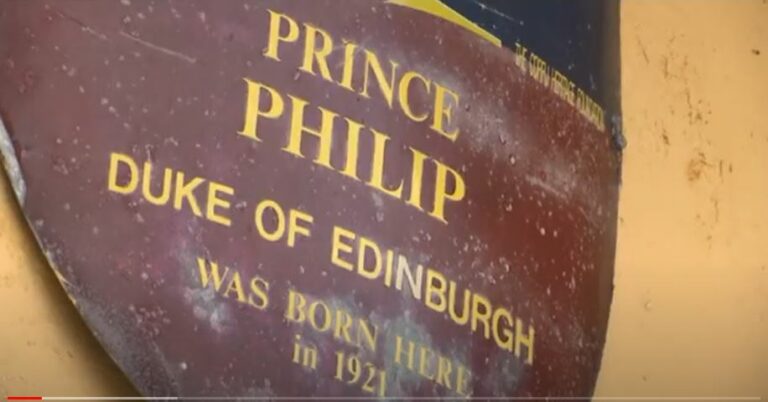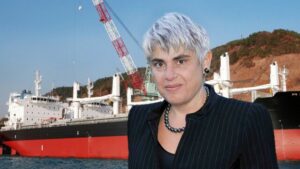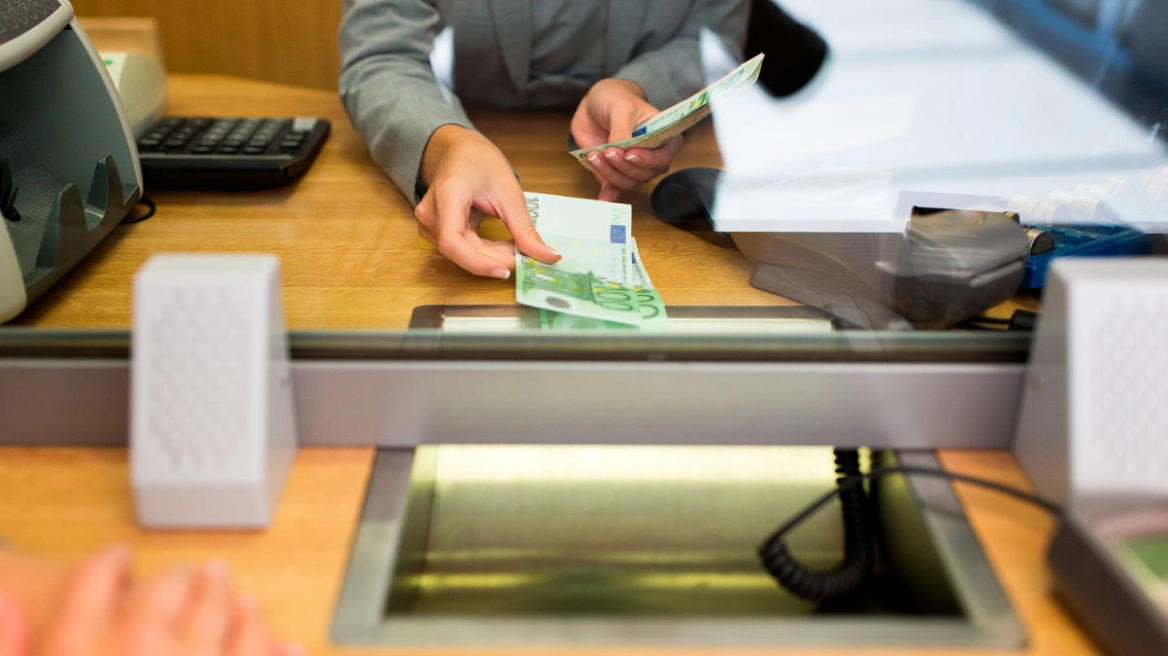Prince Philip‘s birth and baptism on the island of Corfu almost a century ago were the first events of pomp and circumstance the royal would witness in his long life.
Born a member of the Greek royal family on June 10, 1921, at his parents’ home, Mon Repos, Philip’s baptism at the Church of St George in the Old Fortress became a massive social event.
The entire island effectively was a godparent, represented by the highest-ranking local officials.
Documents accessed by The Associated Press at the General State Archives of Corfu showed details of the menu, speeches and formality of the day.
A newspaper clipping showed one of his godfathers hoping “…his (Philip’s) life is sweet, nice and peaceful just as the nature of Corfu is sweet and nice”, and asked that God allow them to “witness his marriage taking place under the dome of Hagia Sophia”.
“When the representatives of the people, the city council, become godparents – in other words when the city council head and mayor of the time took on the responsibility of baptizing him – it means it was the most significant event,” said Dimitris Metallinos, head of city council and lecturer of archival studies at Corfu’s Ionian University.
Metallinos said there were decorations everywhere and bands played.
Philip was the fifth child and only son of Prince Andrew, younger brother of the king of Greece.
Despite being born and baptized on Corfu, Philip spent very little time there.
When he was only 18 months old, Philip’s parents fled to France.
His father, an army commander, had been tried after a devastating military defeat by the Turks. After British intervention, the Greek junta agreed not to sentence Andrew to death if he left the country.
Philip’s parents drifted apart when he was a child and eventually he would be raised by relatives abroad.
Metallinos said that following Philip’s departure from Corfu in 1922, “officially we lose sight of him after that”.
He says there are local witness accounts that Philip came to Corfu unofficially in 1944 as he returned from the Battle of Crete.
Philip allegedly stopped to secretly see his nanny and other loved ones.
He never visited Corfu officially.
Philip’s trips to Greece in general were rare and included the wedding of King Constantine to Princess Anne-Marie of Denmark.
He also came during the rule of the military junta to bring his mother, Princess Alice, a descendant of Queen Victoria, to Buckingham Palace.
The monarchy was abolished in Greece in a referendum in 1974.
Since then, it plays no part in Greek political life or mainstream public sentiment.
Except for a sign identifying Mon Repos as Philip’s birthplace, there are few signs in Corfu that a monarchy even existed.
“The inhabitants of Corfu should actually show a more friendly sort of attitude when Prince Philip died,” said Spiro Flamburiari, chairman of the Corfu Heritage Foundation, which promotes British-Greek relations and British contributions to the island.
Few flowers were left at Mon Repos following the announcement of Philip’s death.
Prince Philip died Friday aged 99.
His funeral is scheduled for Saturday.
Ask me anything
Explore related questions





